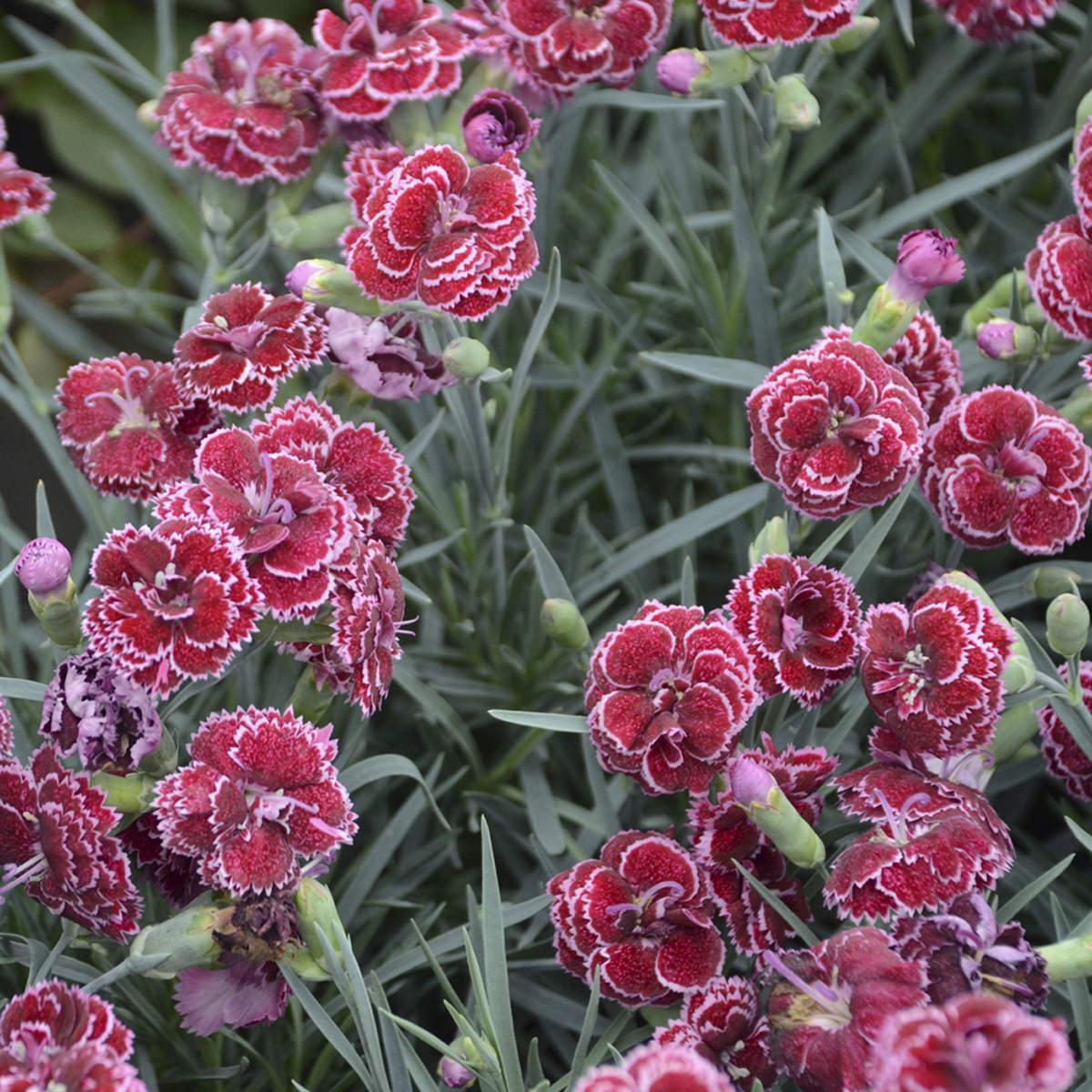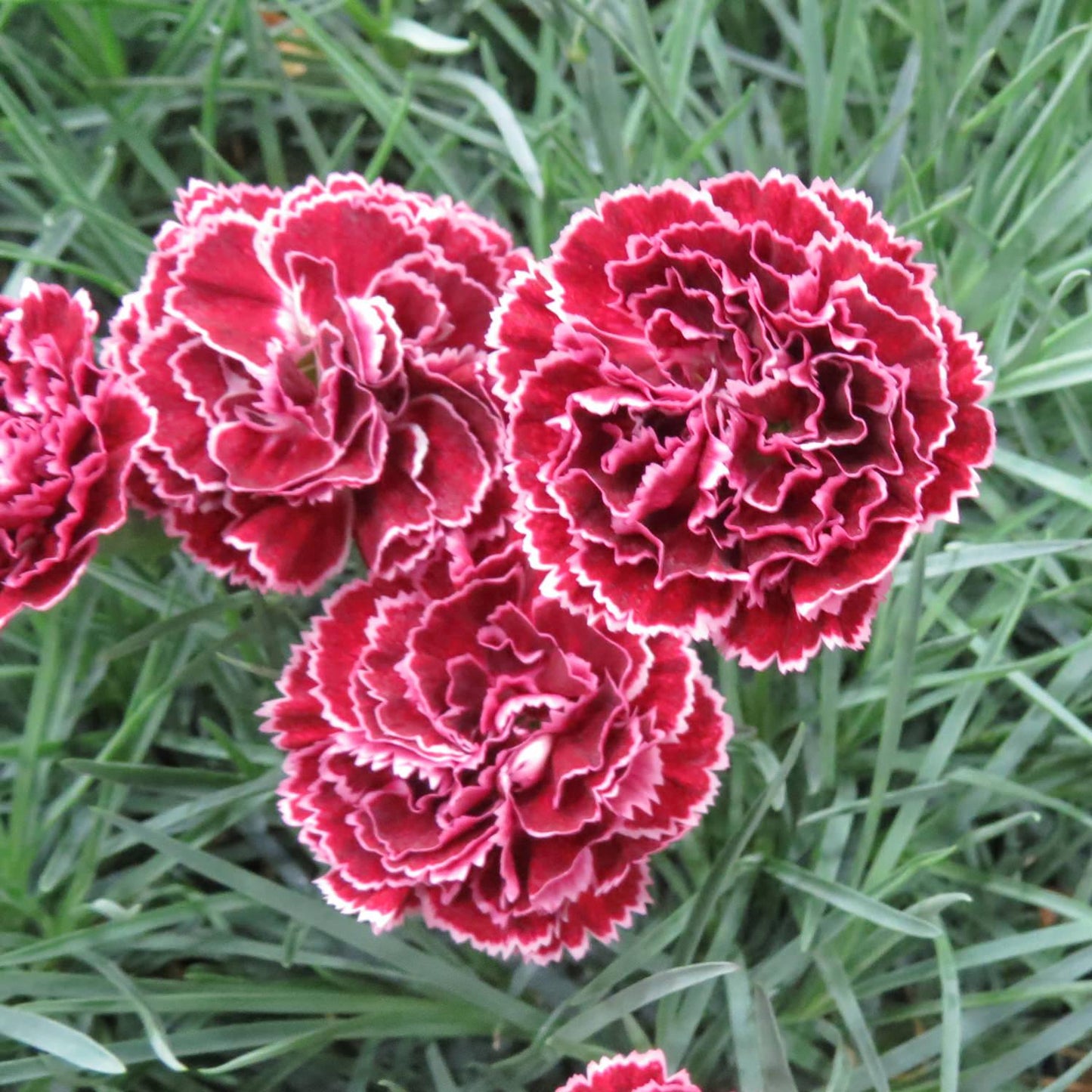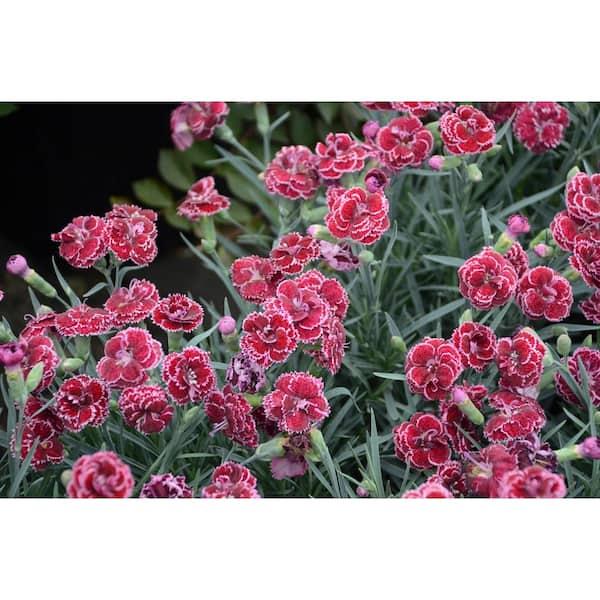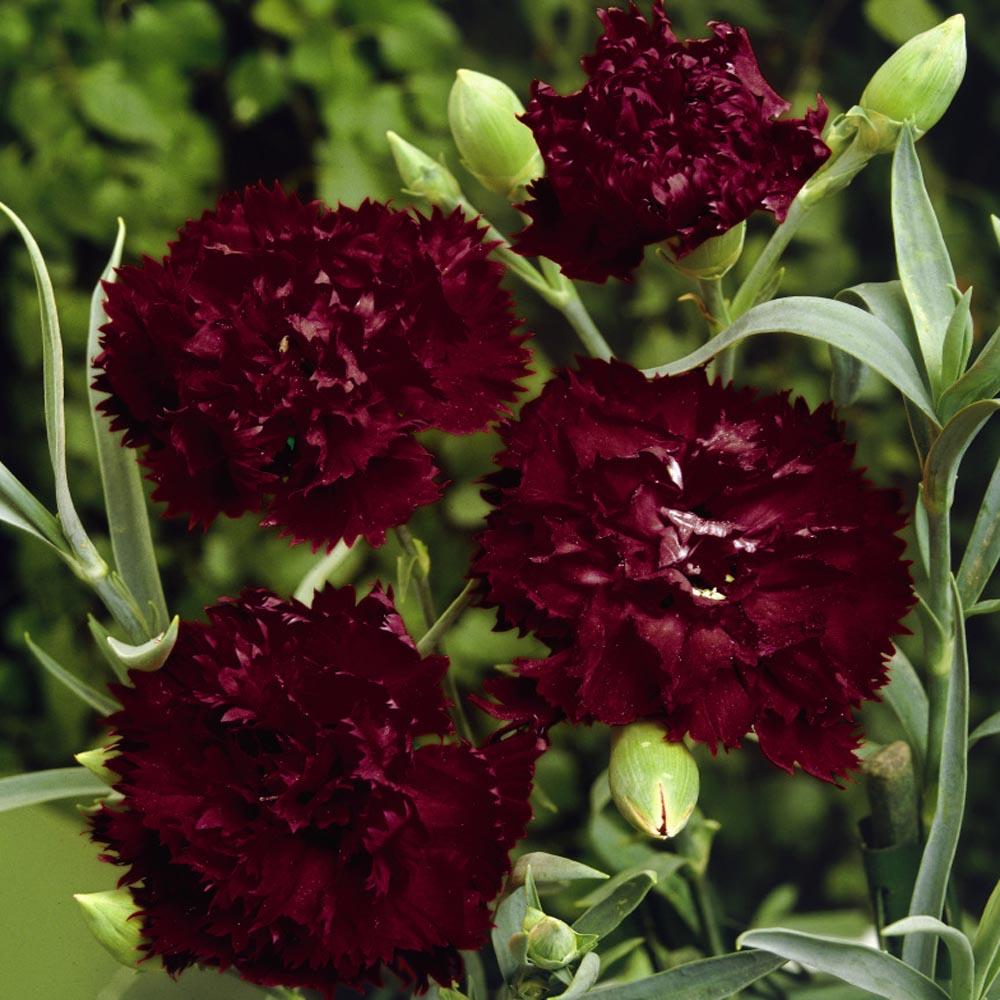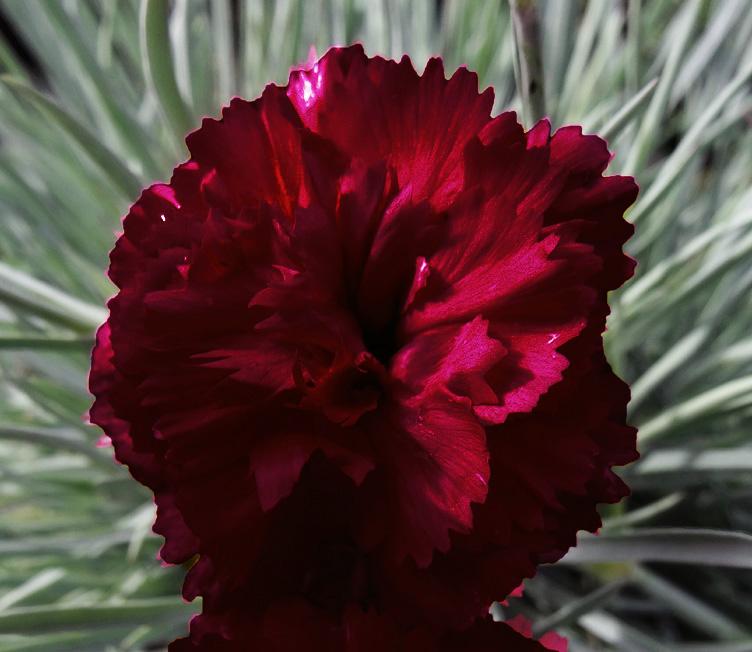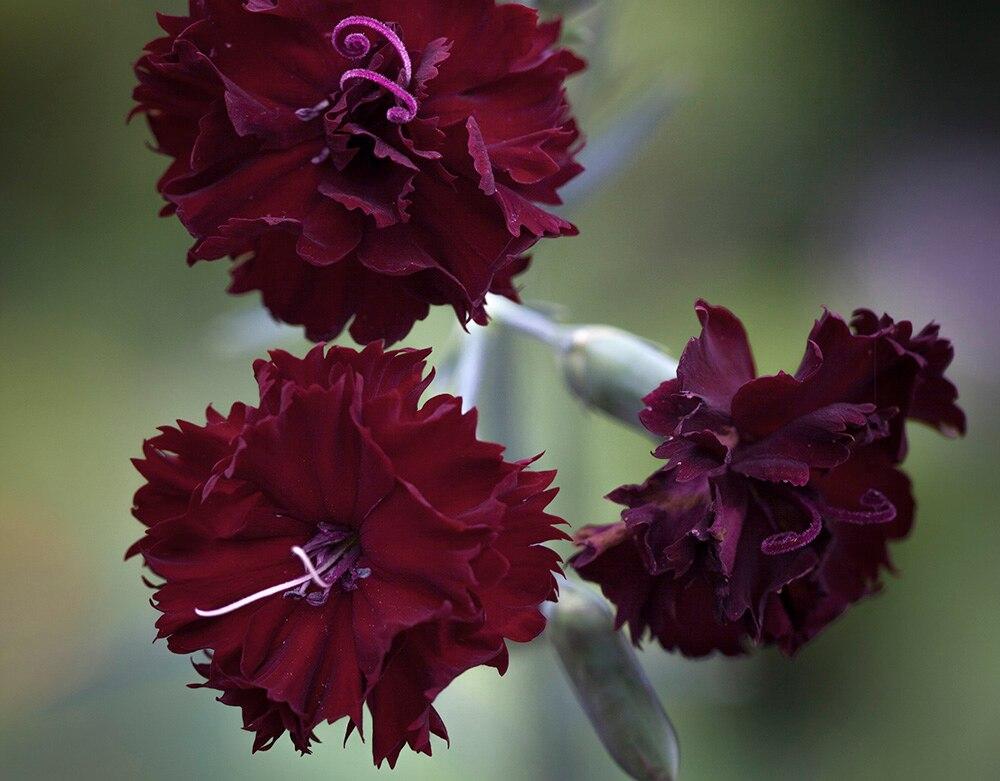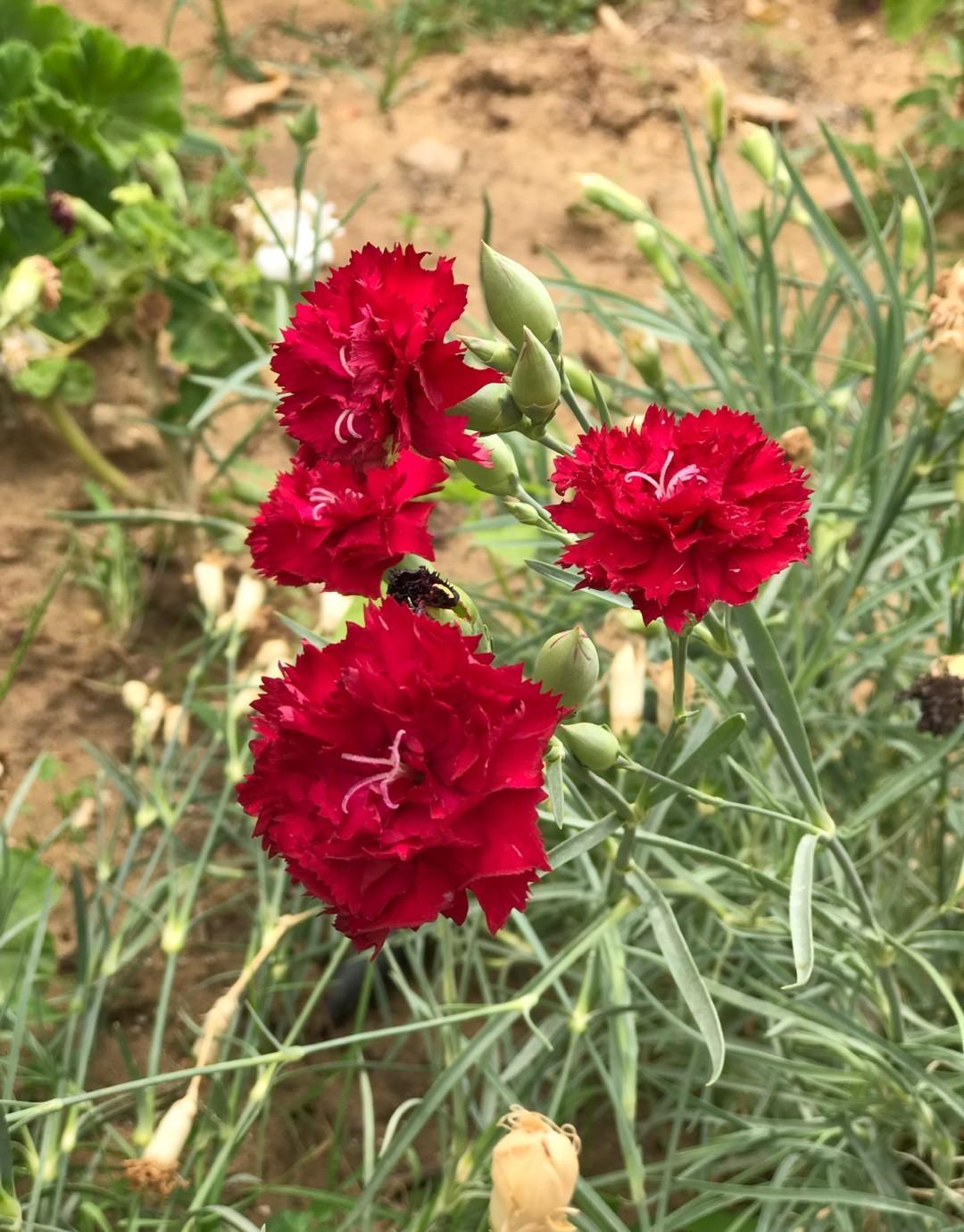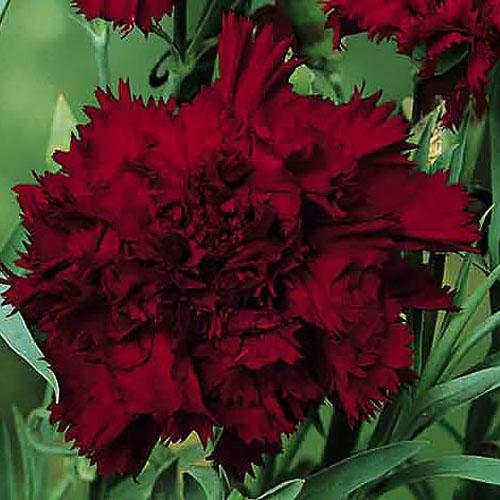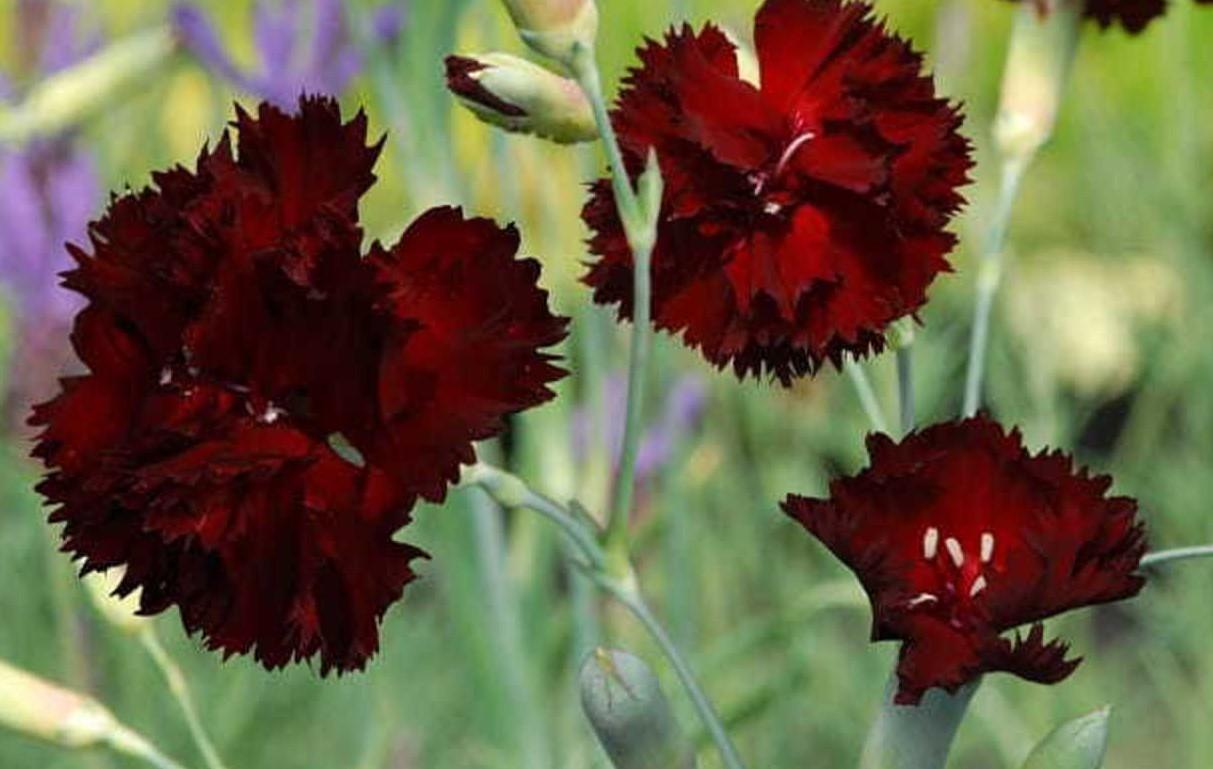1
/
of
14
King of the Blacks' Pinks, Sweet William 1 Quart (Pack of 4)
King of the Blacks' Pinks, Sweet William 1 Quart (Pack of 4)
Regular price
$21.24 USD
Regular price
$27.61 USD
Sale price
$21.24 USD
Unit price
/
per
SKU:PE1Q150-RedCrocus
Couldn't load pickup availability
Dianthus caryophyllus 'King of Blacks'
Description
The 'King of Blacks' is a striking cultivar of Dianthus known for its deep, dark maroon to almost black blooms. These flowers are not only visually stunning but also emit a sweet fragrance, making them a favorite in gardens and floral arrangements. The plant's compact growth habit and evergreen foliage add year-round interest to any landscape.
Suggested Uses
This Dianthus is perfect for borders, rock gardens, and containers. Its dramatic color makes it an excellent choice for contrast in mixed plantings. The flowers are also ideal for cutting and can be used in bouquets and floral arrangements.
Plant Details
-
 Botanical Name: Dianthus caryophyllus 'King of Blacks'
Botanical Name: Dianthus caryophyllus 'King of Blacks' -
 Common Name: King of the Blacks' Pinks, Sweet William
Common Name: King of the Blacks' Pinks, Sweet William -
 Size & Growth: 12-18 inches tall and wide
Size & Growth: 12-18 inches tall and wide -
 Hardiness Zones: 5-9
Hardiness Zones: 5-9 -
 Foliage Type: Evergreen
Foliage Type: Evergreen -
 Bloom Time: Late spring to early summer
Bloom Time: Late spring to early summer -
 Growth Rate: Moderate
Growth Rate: Moderate -
 Light Requirements: Full sun to partial shade
Light Requirements: Full sun to partial shade -
 Attracts Pollinators: Yes, attracts bees and butterflies
Attracts Pollinators: Yes, attracts bees and butterflies -
 Indoor Friendly: Yes, with sufficient light
Indoor Friendly: Yes, with sufficient light -
 Container Friendly: Yes
Container Friendly: Yes -
 Deer Resistant: Yes
Deer Resistant: Yes -
 Pet Warning: Non-toxic but may cause mild stomach upset if ingested
Pet Warning: Non-toxic but may cause mild stomach upset if ingested -
 Fragrant: Yes
Fragrant: Yes -
 Cut Flower: Excellent
Cut Flower: Excellent -
 Grows Well With: Lavender, Salvia, and other sun-loving perennials
Grows Well With: Lavender, Salvia, and other sun-loving perennials
Care Tips
-
 Planting Instructions: Plant in well-drained soil with good air circulation
Planting Instructions: Plant in well-drained soil with good air circulation -
 Soil Moisture: Keep soil moderately moist, but not waterlogged
Soil Moisture: Keep soil moderately moist, but not waterlogged -
 Soil Type: Prefers neutral to slightly alkaline soil
Soil Type: Prefers neutral to slightly alkaline soil -
 Humidity: Tolerates average humidity levels
Humidity: Tolerates average humidity levels -
 Pruning Instructions: Deadhead spent flowers to encourage reblooming
Pruning Instructions: Deadhead spent flowers to encourage reblooming -
 Winter Care: Mulch in colder zones to protect roots
Winter Care: Mulch in colder zones to protect roots -
 Planting Depth: Plant at the same depth as in the pot
Planting Depth: Plant at the same depth as in the pot -
 Fertilization: Fertilize in spring with a balanced fertilizer
Fertilization: Fertilize in spring with a balanced fertilizer -
 Special Care: Avoid overhead watering to prevent fungal diseases
Special Care: Avoid overhead watering to prevent fungal diseases
Share
